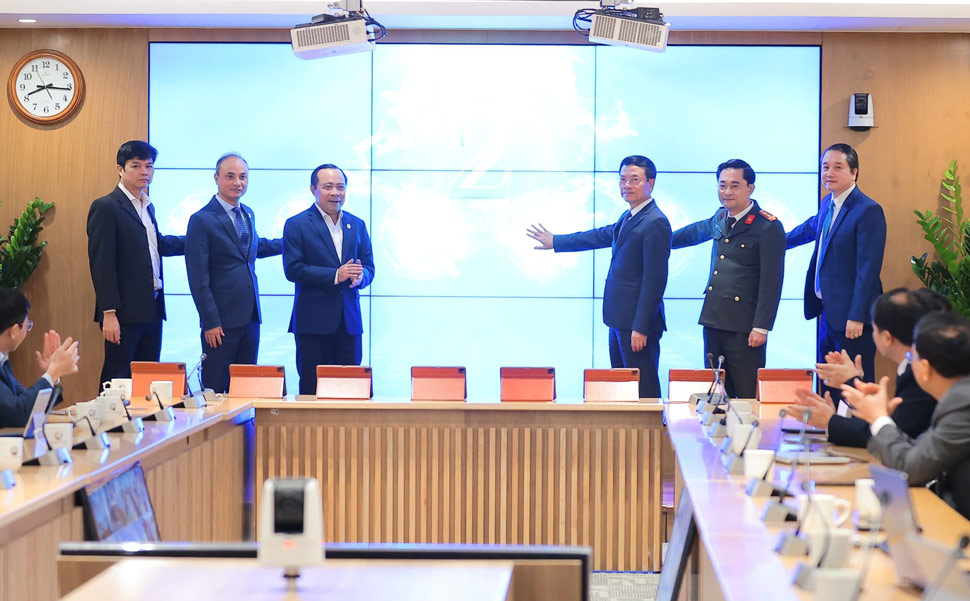
Speaking at the announcement ceremony, Minister of Science and Technology Nguyen Manh Hung assessed this as a new technology platform that helps innovate management models, bringing Vietnam into the operational stage based on data, digital processes and international standards.
The Minister said that in order to innovate science and technology, it is necessary to innovate management in the direction of creating motivation. This is reflected in the shift from administrative control to data-based and transparent operations.
The new software system will improve the quality of appraisal, shorten the appraisal time, reduce errors, correctly assess the contributions of each task and form a market for professional scientific tasks. This is a management approach in the direction of creativity and publicity.
The Minister suggested that scientists, councils and host agencies actively use the system developed by the Vietnamese team. The system has features equivalent to Korean platforms and can connect with cooperation and co-sponsorship with developed countries. The Minister also suggested that users respond to continue improving and consider this an indispensable tool in research. The software will be continuously improved, in accordance with international standards and Vietnamese practices.

At the announcement ceremony, NAFostED Fund signed 309 topics of science and technology first implemented in the spirit of the new Law on Science and Technology. The management model has shifted from focusing on input to focusing on output. Management process switches from tracking invoices to tracking research results.
How to spend the budget from estimates to spending contracts. The research results belong to the research organization for commercialization and the research group is entitled to at least 30% of the commercialization value. The project is only evaluated as completed when the results are given to the enterprise to become a revenue-generating product. This revenue is expected to be 5 to 10 times higher than the cost of research after three to five years.
In the spirit of the Law on Science, Technology and Innovation 2025, the assessment will shift from each individual topic to an overall assessment of the tasks of an organization. This approach accepts risks and encourages innovation. The scale of the task increased when the average value doubled during this period. The proportion of topics in the strategic technology group accounts for more than 50%, demonstrating the orientation of resource concentration.
The list of scientific tasks is divided into 3 classes. The basic research task is mainly for the institute. Applied research tasks are allocated between institutes, schools and enterprises at an equivalent ratio. The task of developing distributed technology in the direction of enterprises accounting for a higher proportion. Currently, only 30% of enterprises are responsible for technology development and need to increase to shorten the process of bringing products to the market.

NAFostED Fund Director Dao Ngoc Chien said that he will implement the completion of the system in an open and standardized direction, ensuring national connectivity in accordance with the spirit of Article 20 of the Law on Science, Technology and Innovation 2025. The fund will ensure a safe and transparent operating system, using real-time data for task life monitoring.
The fund will continue to support scientists, management agencies and boards in the process of operating the system. Digital platforms are considered a new, effective and modern way of working. NAFostED will coordinate with ministries, branches and localities to share experiences and deploy the system, aiming to form a digital map of national scientific tasks, thereby improving operational capacity at the national level.











